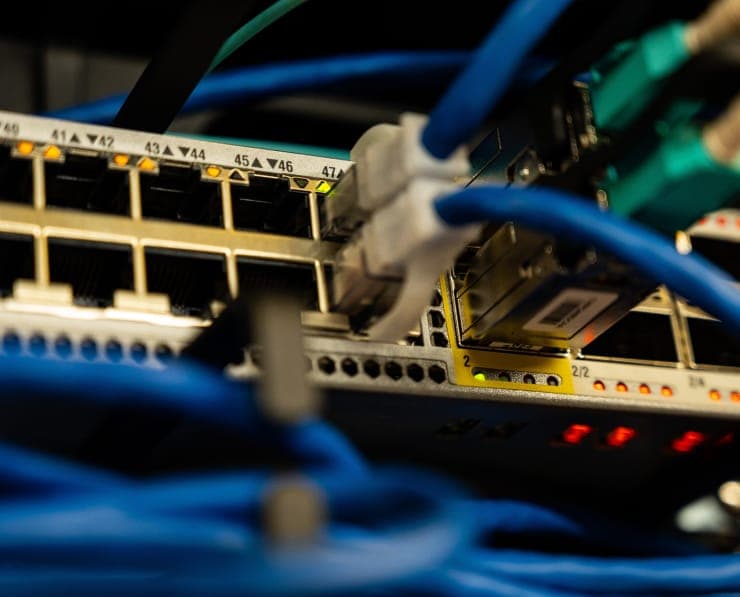Student Feedback
300-209: CCNP Security Implementing Cisco Secure Mobility Solutions (SIMOS) Certification Video Training Course Outline
Course Introduction
Fundamentals of IPSec and Crypto...
Fundamentals of Site-Site VPN
Course Introduction
300-209: CCNP Security Implementing Cisco Secure Mobility Solutions (SIMOS) Certification Video Training Course Info
CCNP Security SIMOS 300-209 Full Course: Pass Your Cisco Exam with Confidence
CCNP Security SIMOS 300-209 Complete Learning Experience
What You Will Learn From This Course
• Understand the fundamentals of IPSec and cryptography in network security
• Gain hands-on knowledge of site-to-site VPN implementation on Cisco IOS and ASA platforms
• Learn to configure and deploy remote access VPN solutions on Cisco IOS and ASA firewalls
• Explore SSL VPN technologies and implement secure remote access solutions
• Understand DMVPN, GETVPN, and FlexVPN concepts and deployment strategies
• Gain practical skills in configuring IOS VPN with Microsoft Server 2016
• Learn troubleshooting techniques for various VPN configurations
• Develop a deep understanding of secure mobility solutions for enterprise networks
• Prepare for the Cisco CCNP Security 300-209 SIMOS exam with real-world scenarios and lab exercises
Learning Objectives
The primary objective of this course is to provide learners with a thorough understanding of secure mobility solutions using Cisco technologies. By the end of this course, students will be able to design, configure, and manage various VPN solutions, including site-to-site, remote access, SSL, DMVPN, GETVPN, and FlexVPN. They will gain the knowledge required to deploy secure remote access, protect data communications, and troubleshoot complex VPN environments. This course emphasizes practical, hands-on skills that are essential for network security engineers and IT professionals seeking to advance their careers. Additionally, learners will develop the ability to configure Cisco ASA and IOS devices to ensure secure, encrypted communication across enterprise networks.
The course also focuses on understanding encryption standards, authentication methods, and cryptographic protocols used in modern VPN technologies. Students will explore how to implement secure tunnels between sites, establish remote user access, and configure flexible VPN solutions to meet organizational security requirements. Mastery of these objectives will enable learners to confidently implement secure mobility solutions and prepare for the Cisco CCNP Security 300-209 SIMOS exam, enhancing their professional certification and career prospects in the field of network security.
Target Audience
This course is designed for network engineers, security professionals, system administrators, and IT professionals who want to enhance their skills in implementing Cisco secure mobility solutions. It is also suitable for individuals preparing for the Cisco CCNP Security 300-209 SIMOS exam. Professionals responsible for deploying, managing, or troubleshooting VPNs in enterprise environments will benefit greatly from this course.
IT specialists who want to expand their knowledge of VPN technologies, secure communication protocols, and Cisco ASA and IOS firewall configurations will find this course highly valuable. The training is structured to accommodate both beginners with basic networking knowledge and experienced network security professionals looking to deepen their understanding of advanced VPN concepts. Additionally, students aspiring to achieve Cisco CCNP Security certification will gain a solid foundation in SIMOS-related technologies, allowing them to confidently manage secure remote access and site-to-site VPN implementations.
Requirements
To make the most of this course, learners should have a foundational understanding of networking concepts, including IP addressing, routing, switching, and basic security principles. Familiarity with Cisco devices and IOS command-line interface (CLI) is beneficial, as the course involves extensive hands-on configuration and lab exercises. Understanding VPN concepts and cryptography basics will also help learners grasp advanced topics more effectively.
Practical experience in managing network devices, configuring routing protocols, and troubleshooting connectivity issues will enhance comprehension and enable students to apply concepts in real-world scenarios. While prior experience with CCNA Security or equivalent knowledge is not mandatory, it is highly recommended to ensure learners can follow along with advanced configurations and implementations discussed throughout the course. A dedicated learning approach, commitment to completing lab exercises, and willingness to explore Cisco VPN technologies are essential for achieving the desired outcomes from this training.
Prerequisites
Students should have completed CCNA Security or have equivalent networking knowledge before starting this course. Familiarity with the following concepts is required:
• Basic networking and IP addressing
• Routing and switching fundamentals
• Network security principles
• Cisco IOS command-line interface
• Understanding of firewall basics and access control mechanisms
Having these prerequisites will allow learners to focus on advanced SIMOS concepts, including site-to-site VPN, remote access VPN, SSL VPN, DMVPN, GETVPN, and FlexVPN implementations. With these foundations in place, students will be better prepared to configure secure VPN solutions, troubleshoot complex network security issues, and apply learned concepts to real-world enterprise environments.
Description
Secure mobility solutions are a critical component of modern enterprise networks. Organizations increasingly rely on remote access and secure communication technologies to enable employees, partners, and contractors to connect safely to internal resources. Cisco’s Secure Mobility Solutions (SIMOS) provide a comprehensive framework to achieve secure remote access, site-to-site connectivity, and flexible VPN deployments.
This course begins by introducing IPSec fundamentals and cryptography concepts. Understanding these concepts is essential for implementing secure tunnels and encrypted communication between devices. Students will explore the principles of symmetric and asymmetric encryption, authentication, and integrity mechanisms. These foundational topics ensure learners grasp how secure VPN connections are established and maintained across networks.
The next phase of the course covers site-to-site VPN implementations. Learners will gain hands-on experience configuring site-to-site VPNs on Cisco IOS routers and ASA firewalls. Various versions of ASA, including 8.x and 9.x, will be explored to demonstrate real-world deployment scenarios. Students will learn how to establish secure communication between multiple sites, configure routing over VPN tunnels, and implement redundancy for high availability.
Remote access VPN technologies are then introduced, focusing on enabling secure connectivity for individual users. The course details the configuration of remote access VPNs on both IOS and ASA platforms, providing learners with practical skills to manage user authentication, encryption, and traffic policies. Secure Socket Layer (SSL) VPNs are also covered, highlighting their advantages for secure web-based access. Students will implement SSL VPNs, explore clientless and full-tunnel options, and understand how to integrate VPN solutions with authentication servers for enhanced security.
DMVPN, GETVPN, and FlexVPN technologies are introduced as advanced VPN solutions suitable for large-scale enterprise environments. Students will learn how to configure these technologies on Cisco IOS devices, understand their design principles, and troubleshoot potential issues. The course emphasizes real-world scenarios, ensuring learners gain practical knowledge applicable to enterprise networks.
In addition, students will learn how to configure IOS VPNs using Microsoft Server 2016, demonstrating integration with existing directory services and authentication mechanisms. Troubleshooting labs throughout the course reinforce concepts and provide learners with the skills necessary to resolve common VPN deployment challenges.
Course Modules / Sections
The CCNP Security 300-209 SIMOS course is structured into several modules, each designed to provide a comprehensive understanding of secure mobility solutions. The course begins with foundational concepts and gradually progresses toward advanced VPN deployment and troubleshooting. Each module combines theoretical knowledge with hands-on lab exercises to reinforce learning and ensure practical skill development.
The first module introduces the fundamentals of IPSec and cryptography, which form the backbone of secure VPN communications. Students explore encryption standards, key exchange mechanisms, authentication protocols, and cryptographic algorithms used in modern enterprise networks. This module lays the groundwork for understanding how secure tunnels are established and maintained across network devices.
The second module focuses on site-to-site VPNs, covering both Cisco IOS and ASA platforms. Learners gain practical experience in configuring VPN tunnels, routing traffic over secure connections, and implementing redundancy for high availability. The module also examines differences in ASA versions 8.x and 9.x, helping students understand version-specific features and configuration techniques.
The third module introduces remote access VPNs, emphasizing user authentication, traffic policies, and encryption mechanisms. Students learn to configure VPN clients, implement split tunneling, and secure connections for remote employees. SSL VPNs are also covered in detail, with learners exploring clientless and full-tunnel implementations and integration with authentication servers.
The fourth module covers advanced VPN technologies such as DMVPN, GETVPN, and FlexVPN. Students explore the design principles, configuration steps, and operational considerations for deploying these technologies in large-scale enterprise networks. This module includes hands-on labs that simulate real-world scenarios, enabling students to practice configuring secure, scalable VPN solutions.
The fifth module demonstrates IOS VPN deployment using Microsoft Server 2016, highlighting integration with directory services and authentication mechanisms. Troubleshooting labs are integrated throughout the course to help learners identify and resolve common VPN issues, ensuring they can maintain secure and reliable network connections.
Key Topics Covered
The course provides comprehensive coverage of essential and advanced topics related to Cisco secure mobility solutions. Students gain expertise in the following areas:
Fundamentals of IPSec, cryptography, and secure tunneling
Symmetric and asymmetric encryption methods
Authentication and integrity mechanisms for VPNs
Site-to-site VPN concepts, protocols, and configurations
Configuration of site-to-site VPNs on Cisco IOS routers
Implementation of site-to-site VPNs on Cisco ASA 8.x and 9.x firewalls
Remote access VPN fundamentals and deployment strategies
Remote access VPN configuration on Cisco IOS devices
Remote access VPN implementation on Cisco ASA 8.x and 9.x
SSL VPN fundamentals, clientless and full-tunnel deployments
Integration of SSL VPN with authentication servers
DMVPN concepts, configuration, and troubleshooting on Cisco IOS
GETVPN architecture, key management, and deployment
FlexVPN fundamentals and implementation strategies
IOS VPN deployment using Microsoft Server 2016
VPN troubleshooting techniques and real-world labs
Best practices for designing and managing secure mobility solutions
By covering these topics, the course ensures students develop a deep understanding of secure VPN deployments and gain the practical skills needed to implement, maintain, and troubleshoot enterprise-level secure mobility solutions.
Teaching Methodology
The teaching methodology for this course is designed to combine theoretical knowledge with extensive hands-on practice, ensuring learners can apply concepts in real-world scenarios. Each module begins with detailed explanations of key concepts, followed by practical demonstrations on Cisco IOS and ASA platforms.
Video lectures provide step-by-step guidance on configuring VPN solutions, enabling learners to follow along and replicate configurations in their own lab environments. Lab exercises simulate enterprise network environments, giving students the opportunity to implement site-to-site VPNs, remote access VPNs, SSL VPNs, DMVPN, GETVPN, and FlexVPN solutions. These exercises reinforce learning and provide practical experience in configuring and troubleshooting VPNs.
Interactive quizzes and knowledge checks are incorporated throughout the course to assess understanding of core concepts and provide immediate feedback. Students are encouraged to complete lab exercises multiple times to gain confidence and mastery of VPN configurations. Detailed explanations accompany each lab to highlight common challenges, best practices, and troubleshooting techniques.
The course also emphasizes real-world scenarios, teaching learners how to design VPN solutions that meet enterprise security requirements. Students explore network diagrams, traffic flows, and redundancy strategies to ensure secure and reliable connectivity. Instructor-led demonstrations and guided practice ensure learners understand the reasoning behind each configuration step, fostering critical thinking and problem-solving skills.
Peer discussions and collaborative exercises are recommended to enhance learning outcomes. By engaging with fellow learners, students can share insights, troubleshoot issues together, and gain exposure to multiple approaches for implementing secure mobility solutions. This methodology ensures that learners not only acquire technical skills but also develop the ability to apply them effectively in enterprise network environments.
Assessment & Evaluation
Assessment and evaluation in this course are designed to measure learners’ understanding of key concepts, practical skills, and readiness for the Cisco CCNP Security 300-209 SIMOS exam. Evaluations are conducted through a combination of quizzes, lab exercises, and hands-on assessments.
Quizzes are incorporated at the end of each module to test knowledge retention and reinforce learning. These quizzes cover theoretical concepts, configuration commands, and security principles, ensuring students have a solid understanding of the material before progressing to advanced topics. Immediate feedback is provided to highlight areas of strength and identify concepts that require additional study.
Lab exercises form a core component of the assessment strategy. Students are evaluated on their ability to configure and troubleshoot VPN solutions on Cisco IOS and ASA platforms. Labs simulate real-world network environments, requiring learners to apply concepts to design, implement, and maintain secure mobility solutions. Completion of these labs demonstrates practical competence and readiness to handle enterprise network scenarios.
Hands-on assessments are conducted periodically throughout the course to measure mastery of key topics. These assessments require learners to implement complete VPN solutions, troubleshoot connectivity issues, and optimize configurations for performance and security. Evaluators assess students’ ability to apply theoretical knowledge, follow best practices, and resolve configuration challenges effectively.
Final evaluations focus on comprehensive understanding and practical application of secure mobility solutions. Learners are expected to demonstrate proficiency in IPSec, site-to-site VPNs, remote access VPNs, SSL VPNs, DMVPN, GETVPN, FlexVPN, and IOS VPN integration with Microsoft Server 2016. Performance is assessed based on accuracy, efficiency, and adherence to security best practices.
Continuous assessment ensures learners are well-prepared for the Cisco CCNP Security 300-209 SIMOS exam and capable of implementing secure mobility solutions in real-world enterprise networks. By completing all assessments successfully, students gain confidence in their ability to design, configure, and troubleshoot VPNs, enhancing their professional skills and career prospects in network security.
IPSec Fundamentals and Cryptography Overview
Understanding IPSec and cryptography is crucial for implementing secure mobility solutions. IPSec provides confidentiality, integrity, and authentication for data transmitted over networks. Students begin by learning about symmetric encryption, where the same key is used for encryption and decryption, and asymmetric encryption, which relies on public and private key pairs. Key exchange protocols, such as Diffie-Hellman, are covered to demonstrate how secure keys are negotiated between devices.
Authentication mechanisms, including digital signatures and certificates, are explained to ensure learners understand how devices verify identities. Hashing algorithms and message integrity checks are introduced to protect data from tampering during transmission. Students explore how IPSec tunnels encapsulate data packets, providing secure communication between endpoints.
Cryptography concepts are reinforced through practical labs, where learners configure IPSec VPNs on Cisco IOS and ASA devices. These exercises allow students to apply encryption algorithms, configure authentication methods, and verify secure tunnels. Troubleshooting techniques are also introduced, helping learners identify and resolve common cryptographic and IPSec issues.
Site-to-Site VPN Configuration on Cisco IOS and ASA
Site-to-site VPNs are essential for connecting multiple branch offices securely. Students learn the theory behind site-to-site VPNs, including routing, tunneling, and encryption requirements. Configuration on Cisco IOS devices is covered in detail, with learners implementing tunnel interfaces, defining encryption and authentication policies, and testing connectivity.
The course also addresses site-to-site VPN implementation on Cisco ASA 8.x and 9.x firewalls. Differences in ASA versions are highlighted, and learners practice configuring security policies, NAT exemptions, and failover mechanisms. Lab exercises simulate real-world enterprise networks, allowing students to verify tunnel connectivity, monitor traffic flows, and troubleshoot issues effectively.
Remote Access VPN and SSL VPN Implementation
Remote access VPNs provide secure connectivity for individual users. Students explore authentication methods, encryption standards, and traffic policies for remote access scenarios. Configuration on Cisco IOS and ASA platforms is demonstrated, including client setup, tunnel management, and split tunneling options.
SSL VPN technology is introduced to provide secure web-based access. Students implement clientless and full-tunnel SSL VPNs, integrate authentication servers, and configure user access policies. Lab exercises reinforce practical skills, enabling learners to troubleshoot remote access connectivity issues and optimize SSL VPN performance.
Advanced VPN Technologies: DMVPN, GETVPN, and FlexVPN
The course covers advanced VPN solutions for scalable enterprise deployments. DMVPN enables dynamic, secure connections between multiple sites using multipoint GRE tunnels and IPSec encryption. Students learn DMVPN phases, configuration steps, and troubleshooting techniques.
GETVPN provides group-based key management for secure communication across enterprise networks. Learners explore group key distribution, policy configuration, and implementation best practices. FlexVPN offers flexibility and scalability for VPN deployments, and students practice configuring FlexVPN tunnels on Cisco IOS devices.
IOS VPN with Microsoft Server 2016 Integration
Students learn how to configure IOS VPNs using Microsoft Server 2016, enabling secure authentication and integration with directory services. Labs cover user and group configuration, certificate deployment, and verification of secure connectivity. Troubleshooting techniques ensure learners can resolve common integration challenges and maintain reliable VPN services.
Troubleshooting Labs and Best Practices
Throughout the course, troubleshooting labs are integrated to help students identify and resolve configuration errors, connectivity issues, and security vulnerabilities. Best practices for VPN design, redundancy, and optimization are emphasized to ensure secure and reliable deployments in enterprise environments.
Benefits of the Course
This course provides comprehensive training in implementing Cisco Secure Mobility Solutions, equipping learners with practical skills and theoretical knowledge essential for modern network security. One of the main benefits is the ability to design, configure, and manage secure VPN solutions on Cisco IOS and ASA platforms. Students will gain expertise in site-to-site VPN, remote access VPN, SSL VPN, DMVPN, GETVPN, and FlexVPN, ensuring they can implement secure connectivity for enterprise networks.
Another key benefit is exam preparation for the Cisco CCNP Security 300-209 SIMOS certification. By completing this course, learners will develop the confidence and technical skills required to successfully pass the exam. The course emphasizes hands-on lab exercises, which enable students to practice real-world configurations, troubleshoot issues, and understand the operational aspects of secure mobility solutions.
Learners will also gain problem-solving and analytical skills necessary for maintaining secure and reliable network infrastructure. Understanding advanced VPN technologies, cryptography, and secure communication principles allows professionals to design scalable, robust solutions for enterprise environments. The practical approach of the course ensures students can apply learned concepts immediately in their professional roles, improving network security, operational efficiency, and career prospects.
Additionally, the course offers career growth opportunities for network engineers, security professionals, and IT administrators. Mastery of Cisco SIMOS solutions positions students for roles such as network security engineer, VPN administrator, systems engineer, and security consultant. The course also provides transferable skills applicable to various networking and cybersecurity scenarios, making it valuable for long-term professional development.
Course Duration
The CCNP Security 300-209 SIMOS course is structured to provide an extensive and thorough learning experience. The total duration of the course is approximately 40 to 50 hours, which includes video lectures, hands-on lab exercises, quizzes, and practical assessments. This duration ensures that learners can cover all key topics in detail, from foundational concepts to advanced VPN configurations.
Each module is designed to be completed within a specific time frame, allowing learners to progress gradually and build confidence in implementing secure mobility solutions. Foundational modules on IPSec, cryptography, and site-to-site VPNs typically require 6 to 8 hours of focused study, while modules covering remote access VPNs, SSL VPNs, and advanced technologies like DMVPN, GETVPN, and FlexVPN require 8 to 10 hours each due to the complexity and hands-on configuration exercises.
Lab exercises are included as part of the course duration, providing students with practical experience in configuring Cisco IOS and ASA devices. These exercises ensure learners not only understand theoretical concepts but can also apply them in real-world network environments. The duration allows for sufficient time to troubleshoot configurations, analyze network behavior, and refine implementations for optimal security and performance.
Flexible learning options are available, allowing students to progress at their own pace. Learners can allocate additional time to review challenging topics, repeat lab exercises, and ensure mastery of each module. This flexible approach ensures a thorough understanding of Cisco SIMOS solutions and prepares students for professional applications and certification exams.
Tools & Resources Required
To successfully complete this course and gain practical experience, learners will need access to several essential tools and resources. Cisco IOS and ASA devices are required for hands-on labs, including routers, firewalls, and switches that support VPN technologies. Virtual lab environments, such as Cisco Packet Tracer, GNS3, or Cisco VIRL, can be used as alternatives to physical hardware, allowing students to simulate enterprise network scenarios and practice configurations.
Additional software tools include VPN clients, SSL client applications, and network monitoring utilities. These tools help learners verify configurations, test connectivity, and monitor traffic flows over secure tunnels. Access to Microsoft Server 2016 or equivalent directory services is recommended for labs involving IOS VPN integration, enabling students to practice authentication and user management within a secure environment.
Documentation and reference materials are also essential resources. Cisco configuration guides, official manuals, and online knowledge bases provide detailed instructions, best practices, and troubleshooting tips. These resources allow learners to explore advanced configurations, understand platform-specific features, and develop effective implementation strategies.
Internet access and a computer capable of running virtual labs are necessary to access course content, complete lab exercises, and participate in online learning activities. Learners should also have text editors and terminal emulators for configuring network devices, monitoring logs, and testing VPN connectivity.
The combination of practical hardware or virtual labs, software tools, and reference materials ensures students gain a well-rounded understanding of secure mobility solutions. Access to these tools and resources allows learners to practice configurations, troubleshoot issues, and develop the technical competence required for enterprise network deployments and the Cisco CCNP Security 300-209 SIMOS exam.
The course encourages the use of additional learning resources, such as online forums, discussion groups, and video tutorials, to supplement classroom instruction. Engaging with the networking community helps learners share insights, discuss challenges, and gain exposure to diverse problem-solving approaches. These collaborative resources enhance the learning experience, providing real-world perspectives and practical tips for implementing secure VPN solutions.
By combining comprehensive course modules, extended duration for in-depth learning, and access to essential tools and resources, this course ensures students develop both theoretical knowledge and practical skills. Completion of the course enables learners to confidently design, implement, and troubleshoot secure mobility solutions in enterprise networks while preparing for the Cisco CCNP Security 300-209 SIMOS certification.
Career Opportunities
Completing the CCNP Security 300-209 SIMOS course opens a wide range of career opportunities in the field of network security and enterprise networking. Network security engineers are in high demand as organizations seek professionals capable of implementing and managing secure communication infrastructures. Students who master secure mobility solutions, VPN technologies, and Cisco ASA and IOS platforms can pursue roles such as VPN administrator, network security engineer, systems engineer, and cybersecurity specialist.
The knowledge and skills gained in this course are applicable to both large enterprises and service provider networks. Professionals can work on designing secure remote access solutions, deploying site-to-site VPNs, managing SSL VPN and DMVPN implementations, and troubleshooting complex network security issues. With hands-on experience in configuring and managing VPNs, graduates can ensure secure, reliable, and scalable connectivity for organizations of all sizes.
Security consultants and IT architects benefit from expertise in SIMOS technologies by assisting organizations in creating security policies, planning VPN infrastructure, and implementing best practices for secure mobility. The ability to configure FlexVPN, GETVPN, and integrate IOS VPN with Microsoft Server 2016 positions learners for advanced roles that require strategic deployment of secure networking solutions.
Additionally, career growth in network security is supported by the global recognition of Cisco certifications. Professionals holding CCNP Security credentials demonstrate validated expertise in secure mobility solutions, giving them a competitive edge in the job market. This course prepares learners to manage secure remote access for enterprise networks, which is crucial as businesses increasingly adopt remote work, cloud applications, and hybrid networking environments.
Graduates of this course can also pursue specialization in areas such as VPN troubleshooting, enterprise network design, cybersecurity management, and advanced networking protocols. The combination of practical skills, theoretical knowledge, and certification readiness ensures students are well-equipped to advance their careers and secure leadership roles in IT and network security domains.
Conclusion
The CCNP Security 300-209 SIMOS course provides an extensive and comprehensive learning experience for network security professionals seeking to master secure mobility solutions. From foundational concepts such as IPSec and cryptography to advanced technologies like DMVPN, GETVPN, and FlexVPN, the course equips learners with the skills required to design, implement, and manage secure VPN infrastructures in enterprise networks.
Through hands-on lab exercises, practical demonstrations, and real-world scenario simulations, students gain the ability to configure Cisco IOS and ASA devices for site-to-site and remote access VPNs. SSL VPN deployment, authentication integration, and troubleshooting techniques are covered in detail, ensuring learners can address real-world challenges in securing enterprise communications.
The course emphasizes practical application, encouraging learners to implement configurations, monitor network traffic, and troubleshoot connectivity issues. This approach ensures students not only understand theoretical concepts but can also apply them effectively in professional environments. By completing this training, learners build confidence in managing secure mobility solutions, enhancing both their technical proficiency and professional credibility.
In addition to technical skills, the course prepares students for the Cisco CCNP Security 300-209 SIMOS certification exam. Mastery of SIMOS modules, practical configuration experience, and understanding of secure mobility concepts position learners to achieve certification and validate their expertise in the field of network security. The course also highlights career growth opportunities, enabling graduates to pursue roles such as network security engineer, VPN administrator, systems engineer, and IT security consultant.
Overall, this course offers a complete learning path for professionals aiming to strengthen their knowledge in secure mobility solutions. Students acquire the necessary skills to implement robust VPN architectures, maintain secure enterprise networks, and respond effectively to emerging network security challenges. By the end of the course, learners will have the confidence and competence to design and manage secure mobility solutions, prepare for certification exams, and advance their careers in network security and enterprise networking domains.
Enroll Today
Enrolling in the CCNP Security 300-209 SIMOS course is the first step toward mastering Cisco secure mobility solutions and advancing your career in network security. This course provides comprehensive training, hands-on labs, and expert guidance to ensure students gain both theoretical knowledge and practical skills required in enterprise networks.
By enrolling today, learners gain access to structured modules covering IPSec fundamentals, cryptography, site-to-site VPNs, remote access VPNs, SSL VPN, DMVPN, GETVPN, FlexVPN, and IOS VPN integration with Microsoft Server 2016. The course also offers practical troubleshooting exercises and assessments to validate skills and reinforce learning.
Students benefit from flexible learning options, enabling them to progress at their own pace while ensuring mastery of complex concepts. Access to essential tools, virtual lab environments, and reference materials further enhances the learning experience.
Enroll today to take advantage of this opportunity to become a certified expert in Cisco secure mobility solutions. Gain the skills, confidence, and knowledge necessary to implement, manage, and troubleshoot secure VPN infrastructures in enterprise networks. Prepare for the CCNP Security 300-209 SIMOS exam, unlock career opportunities, and position yourself as a highly skilled network security professional capable of meeting the demands of modern enterprise environments.
This course ensures that learners not only achieve certification readiness but also develop the practical expertise required to succeed in professional roles. Enroll today and start your journey toward mastering Cisco secure mobility solutions and advancing your career in network security.













